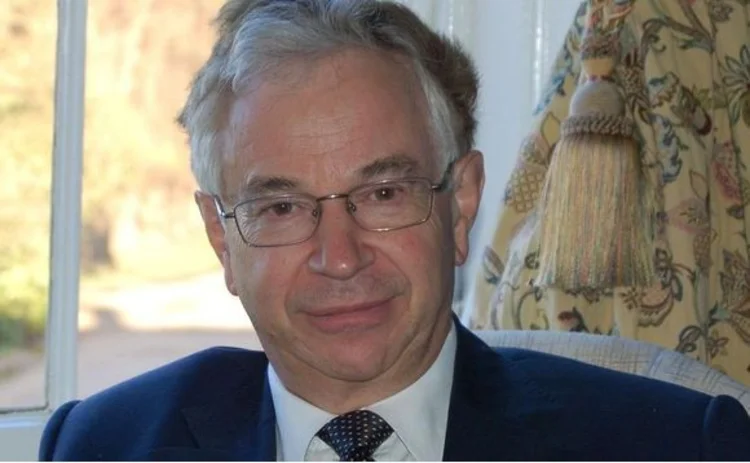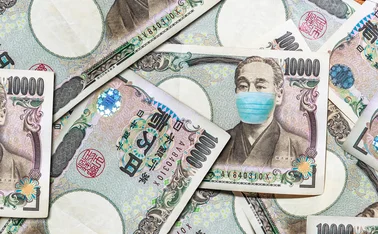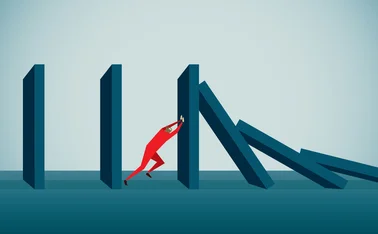
Robert Pringle’s Viewpoint: Assessing Masaaki Shirakawa’s legacy

Central bank governors tend to be treated well by the media and academics while they are in office, but are often trashed after leaving it (think for example of the treatment of such former chairmen of the Federal Reserve as Arthur Burns and Alan Greenspan). In the case of Masaaki Shirakawa, the governor of the Bank of Japan (BoJ), who has decided to leave office on March 19, I suspect it will be the other way round. Often the subject of stinging attacks as governor, he can look forward to being treated more kindly by historians.
Let us look at the case for the ‘prosecution' and then turn to the ‘defence': but first some background, and a word on the timing of Shirakawa's departure, which has been widely misinterpreted.
Shirakawa's announcement on February 5 that he will end his term a few weeks early was motivated to make it possible for the three key members of the new leadership team to start simultaneously. The end of his official term as governor in April happened to fall rather awkwardly three weeks after the end of the term of two deputy governors – a legacy of the political impasse within parliament when Shirakawa was appointed five years ago. This move was neither forced by the government nor as a protest against it, with Shirakawa's decision purely a voluntary one to facilitate a smooth leadership transition.
The heart of the matter
Shirakawa's influence on monetary policy-making in Japan goes back well before he was appointed governor in 2008. Indeed, except for a stint at the graduate school of Kyoto University between 2006 and 2008, he has been at the heart of policy-making ever since being appointed adviser to the then governor, Masaru Hayami, in 1998. He became an executive director in 2002 and was a principal architect of policy under the governorship of Toshihiko Fukui from March 2003.
Although Shirakawa did not expect to become governor – he did so only as a compromise candidate when two previous candidates had been rejected by the Upper House of the Diet – he was eminently well qualified for the position. With an advanced degree from Chicago, following the obligatory Tokyo University qualification, he has been comfortable disputing economics with professional economists and fellow governors such as Mervyn King, Ben Bernanke and Mario Draghi. He has been able to explain, with conviction, the lessons to be drawn from Japan's own experience and the fundamental problems with which Japan is faced both domestically and internationally. He tried to implement monetary policies on the basis of that understanding.
The formation of Japan's asset bubble in the 1980s and its collapse from 1991 was the formative experience of Shirakawa's career. Like Bernanke, King and Jean-Claude Trichet and others, Shirakawa believes central banks could and should provide the anchor to prices that had been missing in the inflationary 1970s – to make sure the lessons of that period were not forgotten. At the same time, and uniquely among his generation of central bank governors, Shirakawa had vivid experience of an asset price bubble – the great Japanese stock and property boom of the 1980s and its collapse in 1990. He had to suffer the painful experience of being lectured to by many eminent academics, mostly from the US, who knew better than he did what the BoJ should be doing – or thought they did.
The right policies?
But the key question remains: did the BoJ draw the right policy lessons to follow?
The verdict of the financial media right now, in early 2013, seems clear, and it is negative one. Though widely liked, and respected for his evident integrity, Shirakawa is seen as yet another central banker that failed to haul Japan out of its deflationary ‘stagnation'. Journalists, many economists and politicians in the West have come to use the one word ‘Japan' to sum up everything that has gone wrong in the aftermath of the financial crisis: ‘Just look at Japan', or ‘You only have to look at Japan' is all they need say. Everybody knows what message the speaker intends to convey: one of dismal failure.
The criticism reached a crescendo in recent weeks, as Japan's ‘deflation' has continued for several years after the great financial crisis of 2007–09. Following the election of a new government headed by prime minister Shinzo Abe, these have been translated into an agreement, reached in January, on a new inflation target of 2%, together with an ‘open-ended' asset purchase program. The bank and government also released a rare joint statement in which they agreed to co-ordinate closely to counter deflation.
But this also is criticised as falling short. As Shirakawa nears the end of his term, there are calls for the government to appoint a more ‘inflation friendly' governor. Despite the BoJ's 20-year record of achieving a reasonable approximation to price stability (it all depends which measure of prices is taken and over what period the assessment is made) critics say the BoJ should ‘try harder' to produce more inflation.
Source of stability
First, the BoJ has expanded its balance sheet (‘printed money') as much as other leading central banks. Second, the Japanese economy has in some respects performed well – real consumption per capita in Japan is well above pre-crisis levels, whereas at the end of 2012 it was still below those levels in the US, the eurozone and UK, and in the longer run prices have actually been rising.
Third, expansion in the monetary base leads to a sustained rise in the money supply only when the demand for bank lending to the private sector increases – as loans create deposits. Stimulating such demand – involving raising what economist John Maynard Keynes called the ‘animal spirits' of businesses – is beyond the powers of the central bank. Fourth, the Japanese economy has been subject to massive external shocks, notably wide swings in exchange rates, which have whiplashed its crucial exporting sector, first inflating profits and then when the yen rose, punishing them.
Given these massive external shocks, a steady monetary policy is itself a major contribution to stability. Under Shirakawa, the BoJ has contributed to a relatively stable (if unsatisfactory) performance in an unstable world.
Inflation policy risks
Then there are the risks that would attend a more aggressive policy. These have been amply spelled out by the Bank for International Settlements – look, for example, at its 2012 annual report. A prolonged period of ultra-low interest rates can have severe long-term adverse effects on the economy and financial system. In the case of Japan, which is burdened by the highest ratio of public debt-to-GDP among advanced economies, this would carry particularly acute risks.
The IMF also calls attention to these risks. In the words of its chief economist Olivier Blanchard: "The fiscal package has led us to increase our growth forecast for 2013 by about 0.5% (to 1.2%), but that comes with a very large caveat, which is that, given the initial level of debt and given the absence of a medium run fiscal consolidation plan, it also comes with large increase in fiscal risks."
Looking further ahead, if the central bank were to succeed in reigniting inflationary expectations, an accompanying rise in interest rates would have a potentially devastating impact on banks with their holdings of government bonds – especially the regional banks that play an important role in financing of industry. Any effect that a higher nominal GDP growth rate would have in reducing the debt-GDP ratio could in such circumstances quickly be offset by the damaging effects of a rise in interest rates.
Somebody defending the BoJ's record could retort to Western critics as follows: ‘You have been wrong about Japan before, and some of you have recognised that, and you are wrong again now. You seem obsessed by deflation-phobia. Yet it is your fear of even small and moderate reduction in prices that has in fact prompted over-expansionary monetary policies that cause repeated bubbles and eventual crashes."
The defender of the BoJ's record could also point out that occasional periods of deflation are needed if prices are to be stable in the long run. Moreover, episodes of deflation have historically been associated with rises in real living standards. For example, growth was almost as well maintained in the so-called ‘Great Depression' of the 1890s as it was in the succeeding period before World War I.
Indeed, if born-again ‘inflationists' are right, and 'inflation' rather than 'deflation' is the key to growth, why not tell central banks to target a 5% per annum trend increase in the CPI, or 10% a year?
Strong record for some
I will finish with two opinions sent to me by seasoned Japanese observers. The first is from Ryo Watabe, a professor of economics at Hosei University:
"Most Japanese academics are critical of the BoJ's monetary policy because, they say, the central bank is a government agency and its conduct should change in accordance with changing economic situations. However, central banks are not almighty; they do not have economic power to make private companies solvent and profitable nor do they have political power to let governments reduce budget deficits.
"I think Mr Shirakawa is one of the best governors that the BoJ has had."
Watabe points out that the approach to monetary policy as reflected in the recent pact is convenient for politicians. It lets them off the hook.
"There are many structural impediments which prevent the Japanese private sector from carrying out innovation. Capital and labour mobility is restricted; you cannot open shops or other businesses easily because there are many official documents to be filed and costs of registration are very expensive.
"Under such circumstances, if too much onus is placed on monetary policy, and if indeed Japan succeeds in getting rid of deflation thanks to monetary easing, it will be used as an excuse not to implement much-needed structural reforms."
My second correspondent, who wishes to remain anonymous, also dwells on the politics of the change:
"Supporters of the new inflation targeting agreement with the government are often politically ambitious economists with vulgar motives. But it is also true that the downsides from having a politically subordinate central bank have been forgotten in Japan: the age of war when the Bank of Japan was called the ‘Nihonbashi branch of the finance ministry' and the savings of middle class were wiped out – all forgotten.
"If the government forces the Bank of Japan to issue unlimited amounts of fiat money, it will merely add to the pile of government bonds. The only investment possible, in practice, at present is spending on further infrastructure. This is unnecessary. It will make no contribution to a more productive or growth-oriented economy. Remember, also, that the politicians still have close ties to contractors who make political donations."
Aged only 63, Shirakawa still has much to contribute. These economists, and other members of the scholarly community, in Japan and overseas, look forward eagerly to a renewed dialogue with professor Shirakawa as soon as he is free of the burdens of office.
Only users who have a paid subscription or are part of a corporate subscription are able to print or copy content.
To access these options, along with all other subscription benefits, please contact info@centralbanking.com or view our subscription options here: www.centralbanking.com/subscriptions
You are currently unable to print this content. Please contact info@centralbanking.com to find out more.
You are currently unable to copy this content. Please contact info@centralbanking.com to find out more.
Copyright Infopro Digital Limited. All rights reserved.
As outlined in our terms and conditions, https://www.infopro-digital.com/terms-and-conditions/subscriptions/ (point 2.4), printing is limited to a single copy.
If you would like to purchase additional rights please email info@centralbanking.com
Copyright Infopro Digital Limited. All rights reserved.
You may share this content using our article tools. As outlined in our terms and conditions, https://www.infopro-digital.com/terms-and-conditions/subscriptions/ (clause 2.4), an Authorised User may only make one copy of the materials for their own personal use. You must also comply with the restrictions in clause 2.5.
If you would like to purchase additional rights please email info@centralbanking.com








